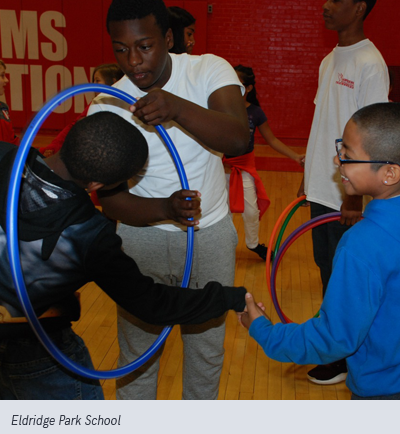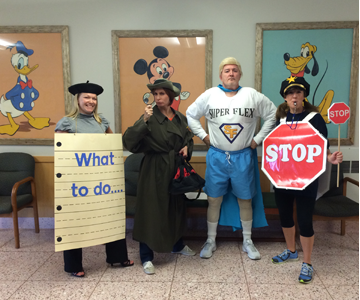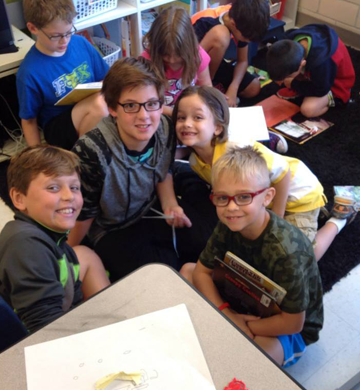
Staff model the core values in their interactions with students and with each other.
The school includes all staff in planning, receiving staff development, and carrying out the school wide character initiative.


The school makes time available for staff planning and reflection on character education.
Before a staff can develop, implement, and model character, it’s important to spend time agreeing on how to define character and determining what it looks like in a school. Many schools neglect this critical piece because it is messy and time consuming. It requires vulnerability, change, and a hard look in the mirror. If schools do not begin here and build a strong foundation, the character initiative may not withstand tough challenges ahead.


Character Schools = Ethical Learning Communities

When a school functions like a community, caring and warmth are felt throughout the entire school. School communities are united in beliefs, goals, and philosophies about learning, and about always doing what is best for students. All staff, from the principal to the bus drivers, believe in and model the school’s core values. Adults work together instead of in isolation and all staff work to know all students, not just those in their classrooms. Authentic relationships create family among staff instead of an “us/them” mentality, and the trust built among adults evolves into a character-rich school.
Rick Weissbourd, American Psychologist
Educators influence students’ moral development not simply by being good role models—important as that is—but also by what they bring to their relationships with students day to day: their ability to appreciate students’ perspectives and to disentangle them from their own, their ability to admit and learn from moral error, their moral energy and idealism, their generosity, and their ability to help students develop moral thinking without shying away from their own moral authority. That level of influence makes being an adult in a school a profound moral challenge. And it means that we will never greatly improve students’ moral development in schools without taking on the complex task of developing adults’ maturity and ethical capacities. We need to rethink the nature of moral development itself.


School Examples
Self-Reflection
How does the staff reflect and demonstrate their core values?
What professional development has been utilized by your school to intentionally focus on staff relationships? If there hasn’t been any, what would you like to see happen? What would a plan look like for enhancing staff relationships?
[wp_quiz id=”3967″]
Research that Supports Principle 8
![]()
“The most effective professional development engages teams of teachers to focus on the needs of their students. They learn and problem solve together in order to ensure all students achieve success.”
“Why Professional Development Matters,” by Hayes Mizell
![]()
“Powerful professional learning designs provide the activities that make professional learning communities more than just a structure.”

Authored by Amy Johnston, Ed.D.



